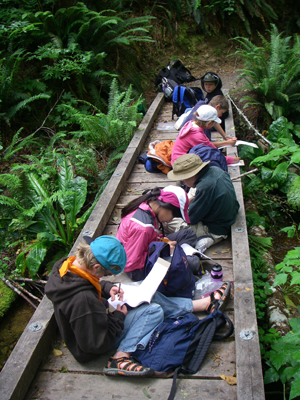An individual’s understanding, skills and motivation to make responsible decisions that considers his or her relationships to natural systems, communities and future generations.

Environmental Literacy is the desired outcome of environmental education which strives to provide learners with:
- Sound scientific information
- Skills for critical thinking
- Creative and strategic problem solving
- Decision-making
The National Science Foundation’s Advisory Committee for Environmental Research and Education noted that “Creating a scientifically informed citizenry requires a concerted, systematic approach to environmental education.”
Why Oregon?
Oregon is a special state. We are known for being a little different and immensely proud of our epic views and opportunities for exploration from the Wallowas to the Oregon Coast. The earliest known evidence of people living in Oregon shows that a strong relationship with natural resources has always defined the Oregon way of life. From Douglas fir trees to Chinook salmon, our landscapes, wildlife, coast and waterways have inspired our stories, our livelihood and our legacy. Oregon’s natural resources are the foundation of our state’s economy, and they have created a dynamic heritage that we must protect and sustain for coming generations.
Oregon is a world leader in cutting-edge environmental practices. States and countries across the globe look to Oregon for leadership and expertise in developing green and sustainable communities. As we strive to further understand the interrelationship between our environment, society and economy, it is imperative that we consider the role of the next generation.